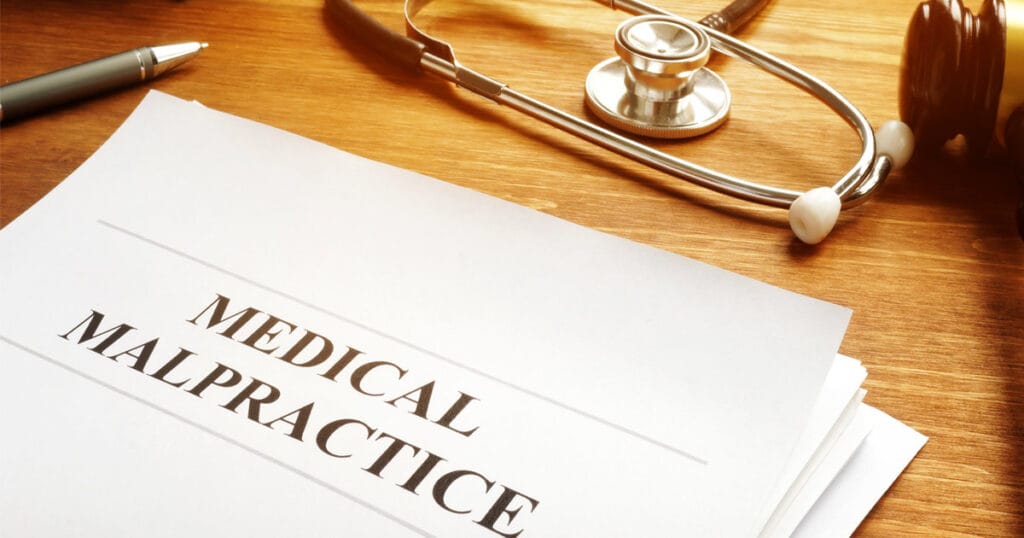Top 5 Most Common Medical Malpractice Cases in Turkey and How to Handle Them
Turkey is now a leading destination for medical tourism, drawing hundreds of thousands of patients each year. People come for affordable, high-quality care, from major surgeries to cosmetic procedures, often at much lower prices than in Western countries.
As more people seek medical care in Turkey, medical malpractice cases have also increased. When mistakes happen, the results can be serious for your health, emotions, and finances.
At Oran Partners, we focus only on medical malpractice cases and help clients from all over the world. This guide covers the five most common types of malpractice in Turkey and offers practical advice if you ever face such a situation.
1. Surgical Errors
Surgical errors are some of the most serious malpractice cases. They can happen because of poor planning, lack of communication, or mistakes made during surgery.
Common examples include:
- Operating on the wrong body part or even the wrong patient
- Leaving surgical instruments or sponges inside the body
- Administering incorrect anesthesia dosage
- Causing unintended damage to internal organs
How to Respond:
- Request your medical records. Make sure you get all reports from before, during, and after the surgery, as well as anesthesia records.
- Seek an independent medical review. Ask another surgeon to look at your case and confirm if a mistake was made.
- Consult a Medical Malpractice Lawyer – An attorney can determine whether the outcome was a recognized complication or avoidable negligence.
- File a malpractice claim. If negligence is proven, you may be able to get compensation for your medical costs, lost income, and emotional distress.
2. Misdiagnosis and Delayed Diagnosis
A misdiagnosis happens when a doctor does not find the real illness. A delayed diagnosis means the correct problem is found, but not soon enough to avoid serious harm.
Typical cases in Turkey include:
- Cancer was misdiagnosed as a benign condition, delaying critical treatment
- Failing to detect a heart attack or stroke in time
- An incorrect diagnosis leading to harmful medication or unnecessary surgery
How to Respond:
- Get a second opinion. Another doctor can check if the first diagnosis was wrong or delayed.
- Collect medical evidence. Keep test results, scans, and doctor’s notes, as these are important for your case.
- Hire an experienced lawyer. In misdiagnosis cases, you need to show that the delay or mistake made your condition worse.
3. Cosmetic Surgery Failures
Turkey is known for cosmetic surgery, with thousands of procedures like rhinoplasty, breast augmentation, facelifts, and liposuction done every year. However, more procedures can also mean a higher risk of mistakes.
Common issues include:
- Asymmetry or deformity after breast augmentation or rhinoplasty
- Severe scarring or uneven fat removal after liposuction
- Nerve damage
- Post-surgical infections due to poor hygiene
How to Respond:
- Document the outcome. Take clear, dated photos of your results.
- Seek corrective care. Talk to a trusted surgeon about your options for evaluation and possible repair.
- Contact a lawyer right away. Cosmetic malpractice cases often need expert opinions to show how the standard of care was not met.
4. Medication Errors
Medication errors can happen at any stage of treatment, such as when prescribing, preparing, or giving the medicine.
Common examples include:
- Prescribing medication to which the patient is allergic
- Administering the wrong drug or dosage
- Failing to monitor harmful side effects or drug interactions
How to Respond:
- Keep all medication records. Save your prescription labels, pharmacy receipts, and any treatment notes.
- Report the error. Let the hospital or clinic know in writing about what happened.
- Seek legal advice. A lawyer can tell you if the mistake counts as malpractice and help you seek compensation.
5. Birth Injuries
Birth injuries from negligence can have lifelong effects on both the mother and the child.
Common examples in Turkey include:
- Misuse of forceps or vacuum extraction tools
- Delayed C-section leading to oxygen deprivation
- Failure to detect fetal distress in time
- Incorrect medication administration during labor
How to Respond:
- Obtain delivery records. Ask for detailed documents about labor, delivery, and newborn care.
- Seek a specialist review. Have another obstetrician check if the right procedures were followed.
- Contact a malpractice lawyer. Birth injury cases are complex and often need several medical experts to prove negligence.
Proving Medical Malpractice in Turkey
For a malpractice claim to succeed, Turkish law requires proof of four elements:
Duty of Care – The healthcare provider was legally obligated to deliver a certain standard of care.
Breach of Duty – The provider failed to meet that standard.
Causation – This breach directly caused harm to the patient.
Damages – The patient suffered physical, emotional, or financial harm as a result.
Breach of Duty – The provider failed to meet that standard.
Causation – This breach directly caused harm to the patient.
Damages – The patient suffered physical, emotional, or financial harm as a result.
Evidence is crucial. This includes medical records, expert opinions, photos, and witness statements.
Challenges Foreign Patients Face in Turkey
Foreign nationals often encounter additional difficulties when pursuing malpractice claims:
- Language barriers can lead to misunderstandings of medical explanations or instructions.
- The legal system may be unfamiliar, making it hard to navigate Turkish court procedures without local help.
- Collecting evidence can be difficult, especially when trying to get full medical records after returning home.
- Some clinics may not cooperate, refusing to share documents or admit mistakes.
At Oran Partners, we specialize in overcoming these challenges by providing multilingual legal support, medical expert access, and direct liaison with Turkish medical institutions.
Why Choose Oran Partners for Your Case
We are Turkey’s leading medical malpractice law firm, exclusively dedicated to this field.
Our strengths include:
- Specialized expertise in both medical procedures and malpractice law.
- International Experience – Successfully representing clients from Europe, North America, the Middle East, and other regions.
- Transparent communication, keeping clients updated at every step of the legal process.
Take Action Quickly: Time Limits Apply
Turkish law has strict time limits for malpractice claims, usually between two and five years depending on the case. Acting quickly helps you:
- Evidence is preserved before it’s altered or lost.
- Witness statements remain fresh and accurate.
- Your case is filed within the legal deadline.
Contact Oran Partners for a Free Case Evaluation
If you think you have been a victim of medical malpractice in Turkey, whether you live here or came for treatment, do not wait. Acting quickly gives you a better chance at justice and full compensation.













